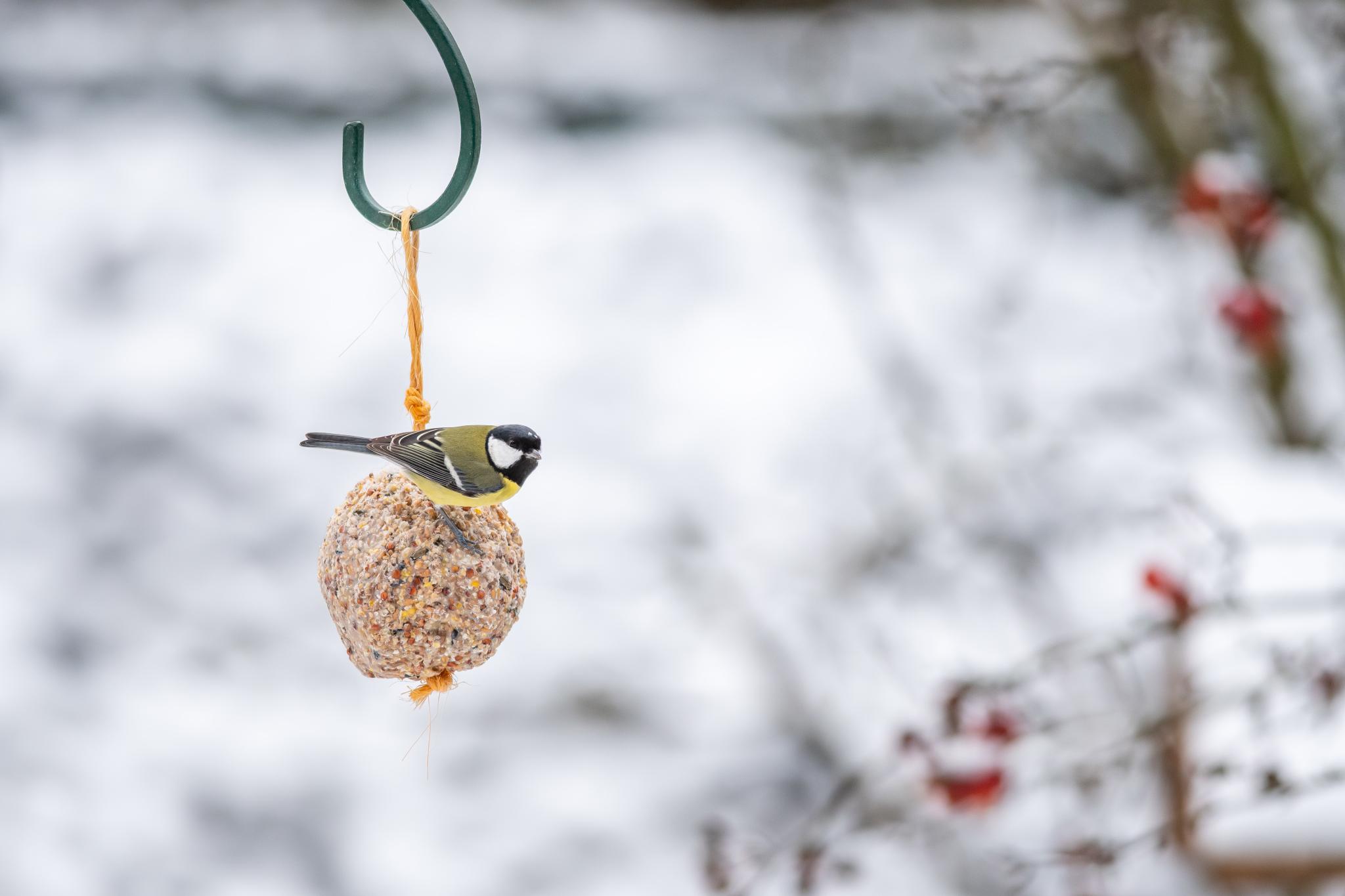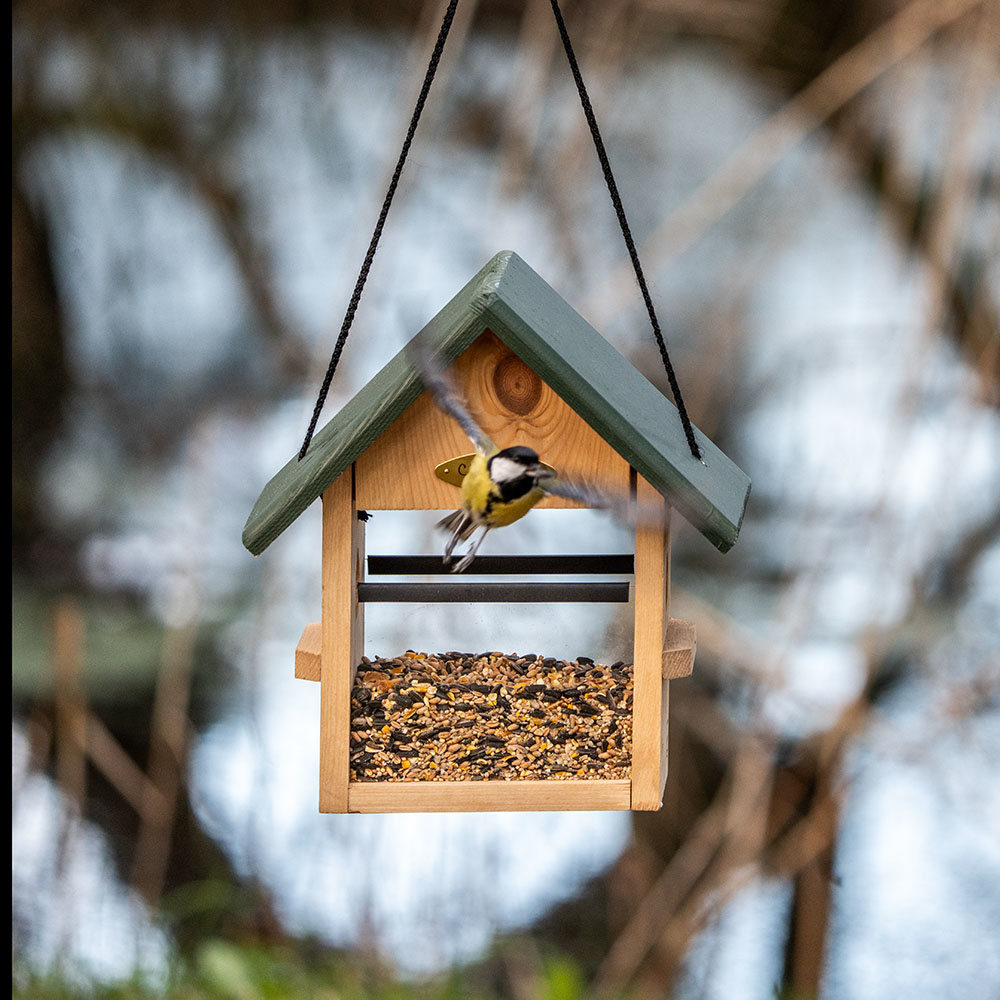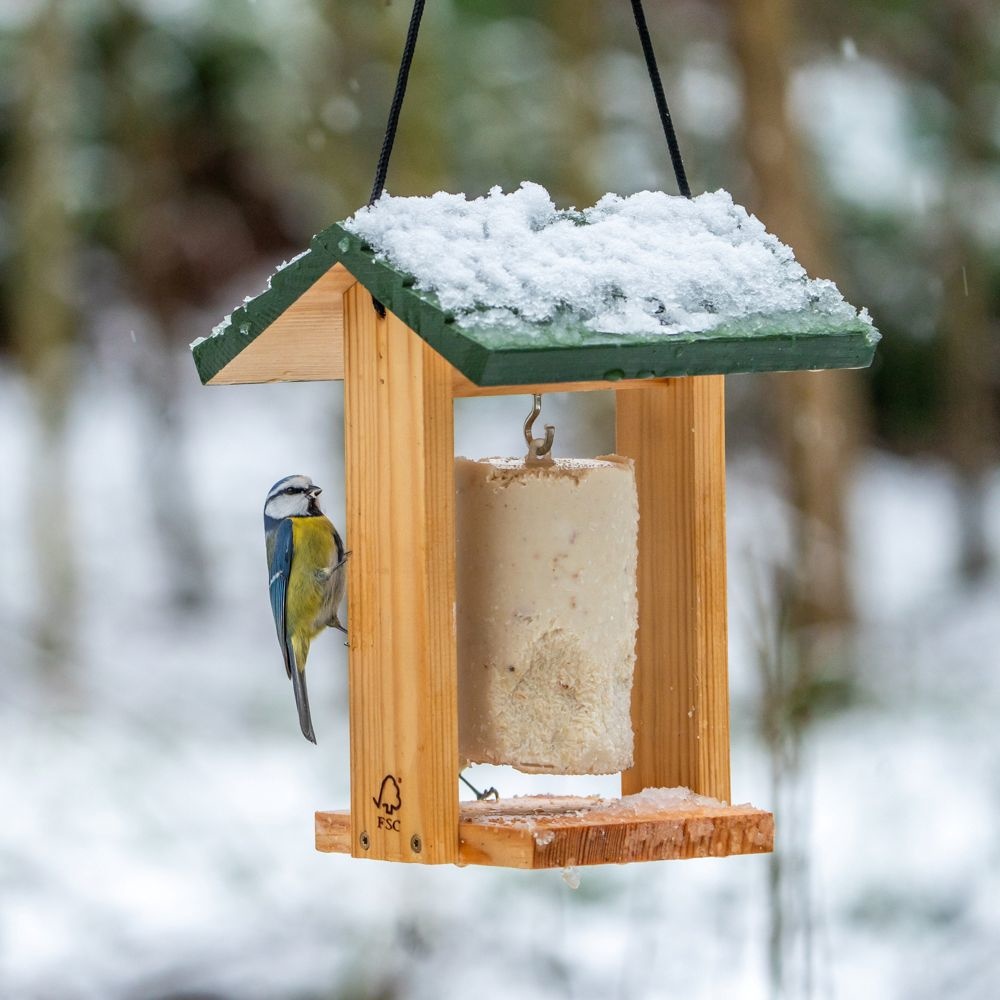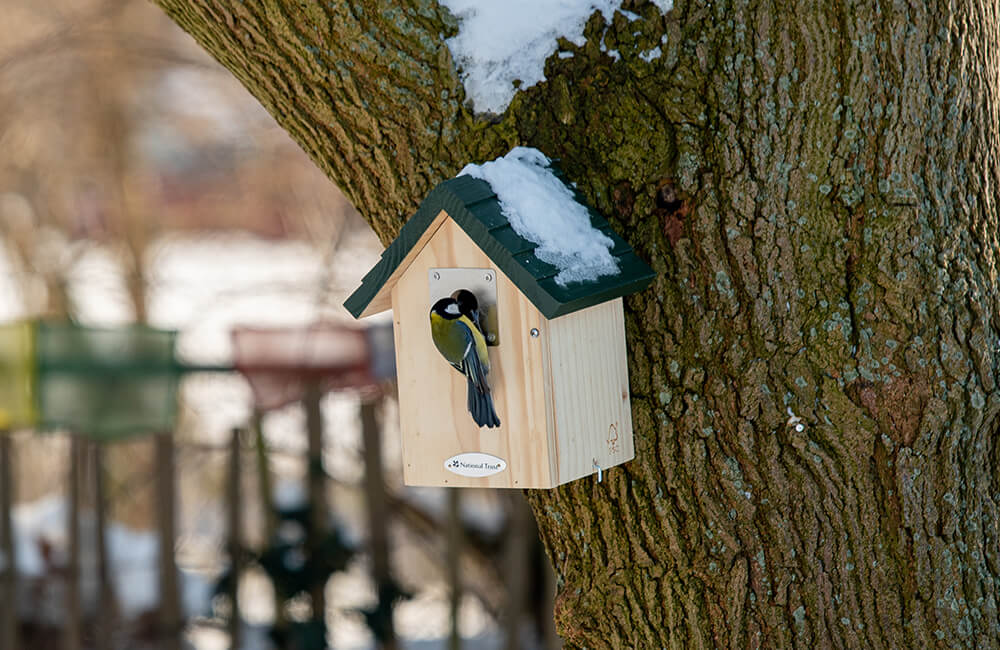As temperatures drop and natural food sources become scarce, winter can be a challenging time for garden birds. By offering the right food, you can not only help birds survive the cold months but also enjoy the lively presence of robins, tits, blackbirds and finches in your garden or on your balcony. Here's how you can give your local wildlife a helping hand during winter.


Why feeding birds in winter is essential
Insects, berries, seeds and other natural food sources are much harder to find during winter. Birds need extra energy to maintain their body heat, especially on frosty nights. Providing nutritious food helps them keep up their strength and increases their chances of survival.
Supporting wild birds during this time of year is also a simple and effective way to contribute to biodiversity—right from your own outdoor space.
Best types of food for birds in winter
Not all bird food is created equal, especially in winter. High-energy foods are key. Here’s what to put on the menu:
- Sunflower hearts – Packed with fat and easy to eat, they are a favourite for species like goldfinches, greenfinches and blue tits.
- Fat balls or suet cakes – Rich in calories, these are ideal during frosty days. Hang them in a tree or feeder to attract starlings, sparrows and woodpeckers.
- Peanuts – Full of protein and oils, peanuts are great for many birds but should be unsalted and offered in mesh feeders to avoid choking hazards.
- Mealworms – An excellent source of protein, perfect for insectivorous birds like robins and blackbirds.
- Mixed seed blends – Choose a high-quality blend without fillers. Look for mixes with millet, oats, sunflower seeds and small chopped nuts.


Foods to avoid feeding birds
While good intentions are always welcome, not all kitchen scraps are safe. Avoid feeding birds:
- Salted, spiced or processed food
- Dry bread – it fills birds up without offering much nutritional value.
- Milk or dairy – birds can't digest dairy products well.
- Fat from roasting trays – it can coat feathers and prevent insulation.
Stick to purpose-made bird food to ensure their health and safety.
Feeding tips for cold-weather success
Want to make your feeding station extra inviting and safe? Keep these tips in mind:
- Keep feeders clean to prevent the spread of diseases.
- Place feeders in sheltered spots, away from strong winds and predators like cats.
- Provide fresh water, as access to liquid water can be more important than food in freezing temperatures.
- Feed consistently, so birds learn to rely on your garden as a food source.


Help birds beyond the feeder
Feeding is just one part of winter support. You can also help by:
- Leaving seed heads and berries in the garden for natural foraging.
- Providing nest boxes or shelters for birds to roost in overnight.
- Avoiding pruning hedges in winter to preserve natural cover and food sources.


Discover Vivara’s winter feeding range
At Vivara, we offer a carefully curated selection of winter bird food and feeders, developed in collaboration with leading nature conservation organisations. Our products are designed to nourish and support birds, while helping you bring nature closer to home.
